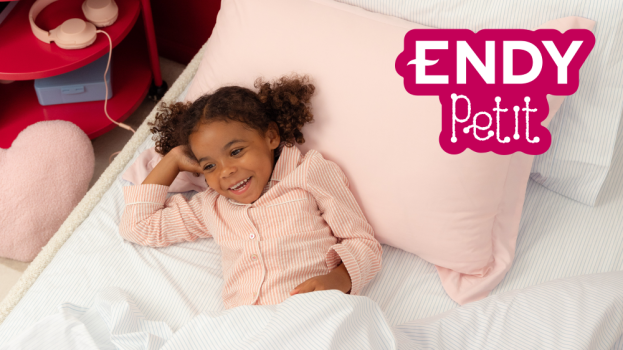Think it’s a luxury to buy a cashmere scarf at the first sign of winter’s chill? How about a cashmere scarf for Fifi the chihuahua? Well, now there is a growing segment who would think nothing of buying that scarf, along with a Burberry dog collar to boot. Welcome to the world of pet pampering.
‘It’s the fastest-growing niche market,’ says Susan Howard Memory, president of JRS Amenities, a Richmond, B.C.-based company which provides customized products for the hospitality industry. The company recently created custom doggy spa kits for use in hotels and for sale at retail to capitalize on a trend that’s seeing people travelling with their pets (see ‘Have dog, will travel,’ page 8).
And JRS isn’t the only one: Big-name marketers like Caban and Holt Renfrew – which just added Princessfield, a Toronto-based line of fantasy dog clothing and tiaras to its high-end offerings – along with smaller boutique companies, are offering up more and varied pet-related products and services and promoting them via in-store events and PR, as well as through traditional advertising in niche magazines like Vancouver-based Modern Dog.
According to Stevens, Penn.-based Unity Marketing, Americans spent close to US$30 billion on pet-related products in 2002, which includes supplies, food and veterinary services. While the pet segment as a whole hasn’t been tracked in Canada yet, according to ACNielsen, Canadians spent over $618 million on pet food alone in the 52 weeks ended Aug. 9, 2003 – a 7% increase over the same period last year. All told, a significant chunk of Americans (55%, according to Unity Marketing) and more than half of Canadians (53%, according to a May 2002 Leger Marketing poll) own one or more pets.
Suzanne Doyle-Ingram, director of operations for Modern Dog, ‘the lifestyle magazine for urban dogs and their companions’ (think wallpaper* meets Dog Fancy), has seen her magazine’s sales increase by 230% since its 2001 launch. She attributes the pet pampering trend to empty nesters and couples who choose not to have children and are thus substituting a pet for a child. The magazine’s demographics are telling: the majority of its readers are married females with an income of over $60,000.
‘Particularly in urban centres, people are concerned with fashion, and this extends to dog guardians as well – they like to look good and they want their dogs to look good too,’ says Doyle-Ingram, who adds that she has seen a rise in high-end doggy boutiques and products in the last few months. ‘It’s a growing trend – increasingly dogs are being treated as members of the family (and in many cases as surrogate children), rather than just pets.’
Lifestyle chain Caban has been tapping into Canadians’ love for pets with the launch of its dog department in early spring, and the product line just keeps expanding, according to Eric Berthold, VP of Toronto-based Caban. ‘Caban is a lifestyle brand, and pets are an increasingly integral part of our customers lives,’ says Berthold of the pet-related product launches.
The lineup includes grooming items, dog beds, toys and pet baking mixes, which are promoted via in-store demonstrations and events. For example, to launch the Dxg Bxne fetch toy, Caban hosted a cocktail party featuring designer Karim Rashid, who led a discussion on product design. Meanwhile, the stores regularly demonstrate the pet-related cooking and grooming items, which are also promoted on the Caban Web site (caban.com).
In April, Caban held an in-store dog portrait session and book-signing with pet photographer Deborah Samuel in the Toronto and Vancouver stores. In the Toronto location, 200 people, along with 100 canines attended, while in Vancouver, 150 people and 75 dogs were present, according to a Caban spokesperson.
Due to the success of this earlier event, Caban held its first ever National Dog Day in September in Toronto and Vancouver. Modern Dog magazine partnered with the retailer to sponsor National Dog Day at stores nationwide, with dog-related product demonstrations and a portion of proceeds going to the Humane Society of Canada. National Dog Day was promoted with newspaper advertising, in-store, on the Web and via e-mail blasts to Caban’s clientele (all done in-house).
As well, a ‘puppy education’ installation for National Dog Day was created pro-bono by Palmer Jarvis DDB. It featured Caban pet products, and a special contest was created for the month of September, with prizes including a pet-friendly weekend at Opus Hotel in Vancouver and a Caban pet gift basket.
Berthold says that all in all, the pet-related products and initiatives have been a success for the store. ‘Since the launch of the dog department at Caban, we are continuing the line and expanding our assortment due to positive sales results.’
Even the high-end, luxury furniture market is getting in on the action. Bowhaus is a Toronto-based company which makes urban pooch crates that double as funky furniture. ‘It’s pet equipment that looks good in your home,’ says owner Katrina Herrndorf.
Bowhaus was launched at the first annual Woofstock festival for dogs last June in Toronto, along with such exhibitors as Roots Canada, with its new ‘Roots Pet’ line and Toronto-based Petiquette, which makes spa products for dogs.
To raise awareness for the Bowhaus, which is geared towards upper-middle-class urban professionals, the product is advertised in Modern Dog and U.S.-based dog magazine The Bark. Herrndorf, who has a background in architecture and graphic design, created the advertising herself; print ads feature the crate (with dog inside) in an urban loft-like setting, complete with martini glass. She says this was done to evoke the high-end quality of the product; at a pricepoint of $395, it is indeed on the high-end.
The Bowhaus is currently available at 30 stores across Canada, such as Toronto’s Bark & Fetch, and is also sold online (bowhaus.ca). Herrndorf says U.S. response to the product has been positive, with American consumers less hesitant to make the purchase, given the favourable exchange rate.
Herrndorf has been spurring the buzz for Bowhaus with a PR effort courtesy of Toronto-based Cliffe Communications. As a result, the Bowhaus has received editorial coverage in shelter mag Style at Home, features in the Toronto Sun, Globe and Mail and Toronto Star, as well as a segment on the Citytv show Cityline.
Herrndorf has also undertaken an extensive direct-marketing campaign targeting high-end pet boutiques with information kits on the product. A Bowhaus-branded 1973 VW van – painted with the company’s trademark logo and retro colours – rounds out the effort to boost awareness for the company.
Herrndorf says the emergence of the pampered pet is linked to consumers’ increasing interest in home décor. ‘In the last 10 years, there has been a tremendous surge towards bringing interior décor to the middle-class person. Everywhere you look there are more ‘home’ stores, magazines, books and TV shows. This, combined with [people doting on] the furry members of the family leads to a natural progression of the ‘fashionization’ of pet ownership.’
Have dog, will travel
The market for travellers with pets is heating up: According to demographic research from Modern Dog magazine, 70% of its readers travel with their dog.
Tapping into this insight, a company from Victoria, B.C. called Pets Can Stay Canada recently created the first-ever nationally recognized pet-friendly certification program for Canadian accommodation providers. Simply put, it provides the hospitality industry a seal of approval for pet-toting guests. And many hotels, like the boutique hotel Opus in Vancouver, are now responding to the fickle needs of these travellers. At the Loews Hotel Vogue in Montreal, for example, guests receive a personalized note from the manager with information on hotel and area pet services and local dog-walking routes. To help pets deal with stress, a veterinarian-developed menu is available, as are pet necessities such as dog and cat beds, leashes and collars.
JRS Amenities’ Susan Howard Memory is offering a similar service to hotels with her pet amenities kits, called Howlistic and Just Poochy, which launched at the beginning of November.
Though JRS has many close contacts within the hospitality industry after having worked in the business for over 28 years, Howard Memory hopes to land the product at the retail level and has begun an extensive PR effort to raise awareness for the kits – which include dog cookies, Paah-sage massage cream, identification tags and pre-moistened wipes. Press releases have been sent out to the major newspapers, as well as fashion, pet and hotel magazines.
As well, JRS has also initiated a direct-marketing campaign targeting pet and gift stores by phone. While Howard Memory says it’s too early to gauge sales results, the company is currently looking at partnering with a national distributor.























